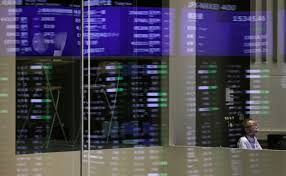Doing Well By Doing Good: 5 Stocks to Buy for 2019

For a long time, the conventional wisdom among investors was that “nice guy” businesses finished last in the stock market. Companies that tried to be socially and environmentally responsible, the critics said, would have to sacrifice some of their profits, revenues, and shareholder returns in the process.
But today there’s a growing body of evidence to suggest that stocks of companies that meet high standards for environmental, social and governance factors (ESG) are actually likely to outperform the market. In other words: Investors can do well by backing companies that do good.
Data from asset management startup Arabesque, for example, found that S&P 500 companies that ranked in the top quintile for ESG factors outperformed those in the bottom quintile by more than 25 percentage points between the beginning of 2014 and the end of June 2018, while their stock prices were less volatile. Other research, from organizations including consulting giant McKinsey & Co. and advocacy group JUST Capital, has reached similar conclusions.
The catch, for investors, is that such results are both aggregated and backward-looking: They don’t help you predict how any individual company will fare next year, or for the next five years. And no amount of socially responsible behavior can compensate for a flawed business strategy or an industry in free-fall.
With that in mind, Fortune looked at a range of companies to find examples that combine praiseworthy business goals with promising financial outlooks. Here are five stocks that could help investors do well while doing good over the next year.
(For more investing advice, read “The 30 Best Stocks to Buy for 2019.“)
Abbott Laboratories
As a diversified health care company, Abbott Laboratories (abt) is insulated to a certain extent from the boom-and-bust cycles associated with pure-play pharmaceutical companies. Analysts expect particularly good things in the near future from the Chicago-based company’s medical-device division. Products like heart valve replacement and repair devices and wearable glucose sensors for diabetes should keep the company’s overall revenues growing steadily for the next several years. But the company is also making a valuable social impact through its $ 7 billion nutrition business. Working with the nonprofit TechnoServe and Indian dairy firm Prabhat, for example, Abbott has been training Indian farmers in better milk production techniques. Abbott reaps the rewards in the form of higher-nutrient milk for its own products; the farmers benefit as their practices improve and their incomes grow and stabilize.
Merck
This Kenilworth, N.J., pharmaceutical giant has been buoyed over the past year in particular by the performance of Keytruda, its blockbuster immunotherapy treatment. That treatment’s effectiveness in fighting a growing number of different cancers has boosted investors’ confidence that it will remain a high earner for Merck (mrk) for a long time to come. But Merck has also shown a continued commitment to vaccines—a far less profitable business with an incalculably important impact on global health. V920, a vaccine that Merck created in collaboration with Canada’s public health agency and NewLink Genetics, has been credited with foiling two Ebola outbreaks this year alone in the Democratic Republic of the Congo. (Read “Deploying the Profit Motive to Beat Ebola.”)
Texas Instruments
Texas Instruments (txn) receives one of the highest rankings from Arabesque’s S-Ray scoring tool, a sign of its high performance on a number of ESG metrics ranging from environmentally friendliness in its manufacturing to good corporate governance. Like many other chipmakers, Texas Instruments has seen its stock tumble recently as investors worry about the impact of trade tensions and a slowdown in Chinese demand. But the company’s dominance in analog semiconductors—widely used in such devices as temperature, speed, and sound sensors—and its expansive customer base outside China have kept its fans bullish. Texas Instruments has one of the industry’s strongest balance sheets, and returns virtually all of its free cash flow to shareholders; its dividend yield currently stands at 3.1%.
Walmart
As the world’s largest company by revenue, mega-retailer Walmart has an outsize role in reducing solid wastes and greenhouse gas emissions. The Bentonville, Ark., company has recently made major strides on both fronts. In 2017, it reported, Walmart (wmt) successfully diverted about 78% of its waste away from landfills thanks to recycling and other measures. It’s now working to slash carbon emissions through Project Gigaton, an effort to convert its suppliers to using more recycled content in packaging and substituting renewable energy for fossil fuels. At the same time, Walmart’s efforts to broaden its e-commerce offerings, most notably through its 2016 acquisition of Jet.com, are paying off and earning plaudits from investors.
Xylem
Water scarcity has become a major threat to the global economy—not to mention one of the most alarming consequences of climate change. Xylem (xyl), headquartered in Rye Brook, N.Y., specializes in water infrastructure, with an emphasis on treating wastewater and eliminating leaks that can siphon off as much as 60% of water supplies in developing markets. As Lori Keith of Parnassus Investments recently told Fortune, even advanced nations like the U.S. have significant infrastructure-improvement needs. Given Xylem’s dominant share of the market, Keith says, “I continue to see a long runway for profitable growth.”

